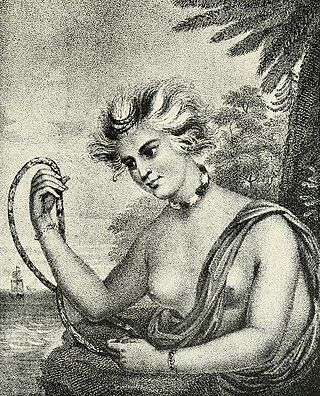Related Research Articles
William Lee was a Virginia merchant and member of the Lee Family of Virginia who served as an American diplomat during the Revolutionary War, became a plantation owner through marriage, and represented Elizabeth City, Warwick and York Counties in the Virginia Senate. His son William Ludwell Lee became an early Lee family genealogist as well as left a will freeing his slaves.

Robert Hampden-Trevor, 1st Viscount Hampden was a British diplomat at The Hague and then joint Postmaster General.

James Woodforde (1740–1803) was an English clergyman, mainly in Somerset and Norfolk, remembered as the author of The Diary of a Country Parson. This vivid account of parish life remained unpublished until the 20th century.

Richard Trevor was an English prelate of Welsh descent, who served as bishop of St Davids from 1744 to 1752 and bishop of Durham from 1752 until his death.

The Venerable Francis Wrangham was the Archdeacon of the East Riding. He was a noted author, translator, book collector and abolitionist.

Wynee, also spelled Winee or Winée, was the first Native Hawaiian from the Hawaiian Islands to travel abroad on a Western ship. She traveled to British Columbia and China before dying on the voyage home to Hawaii.

Charles William Barkley was a ship captain and maritime fur trader. He was born in Hertford, England, son of Charles Barkley.
Imperial Eagle, originally named Loudoun, was a 400-ton (bm) British merchant ship, launched in 1774 at Liverpool. By 1780 her master was S. Rains, her owner Robertson, and her trade a transport out of London. In 1786 she underwent refitting at Shadwell Dock, Thames, London. She then sailed on maritime fur trading ventures in the late 1780s. She was under the command of Captain Charles William Barkley until confiscated in India.
Simon Metcalfe was a British-born American surveyor and one of the first American maritime fur traders to visit the Pacific Northwest coast.
Joseph Mottershead (1688–1771) was an English dissenting minister.
Michael Tyson was an English Anglican priest, academic, antiquary, and artist.

Sir Godfrey Webster, 4th Baronet was an English politician. He used the additional surname Vassall in the period 1795 to 1797.
William Hayward Roberts was an English born schoolmaster, poet and biblical critic, cleric and Provost of Eton College.
Anne Weldon Bernard was an English aristocrat and philanthropist.
Thomas Kelly was an Irish evangelical, known as a Church of Ireland cleric to 1803, hymn writer and founder of the Kellyites.
George Forbes, 5th Earl of Granard PC was an Anglo-Irish politician and peer.

HMS Scarborough was a 20-gun ship built in 1756 which served the Royal Navy until 1780. She had a crew of 160 men.
Grenville was launched at Deptford in 1764 as an East Indiaman. She made four voyages for the British East India Company (EIC) before her owners sold her in 1777 to the Royal Navy, which renamed her HMS Tortoise and employed her as a transport. She foundered in 1779.

John Hayes St Leger (1756–1800) was an Irish army officer, courtier, rake and politician. He was Member of the Parliament of Great Britain for Okehampton from 1791 to 1796.
References
- ↑ Hill, Beth; Converse, Cathy (2008-01-01). The Remarkable World of Frances Barkley: 1769-1845. TouchWood Editions. ISBN 9781894898782.
- ↑ BARKLEY, Frances Archived 2010-10-25 at the Wayback Machine , ABCBookWorld
- ↑ "Fenwick of Lambton - Barkley Family Tree".
- ↑ Hill and Converse, Ref 1 above, p 19
- ↑ Hill and Converse, Ref 1 above, pp 16-18, p21